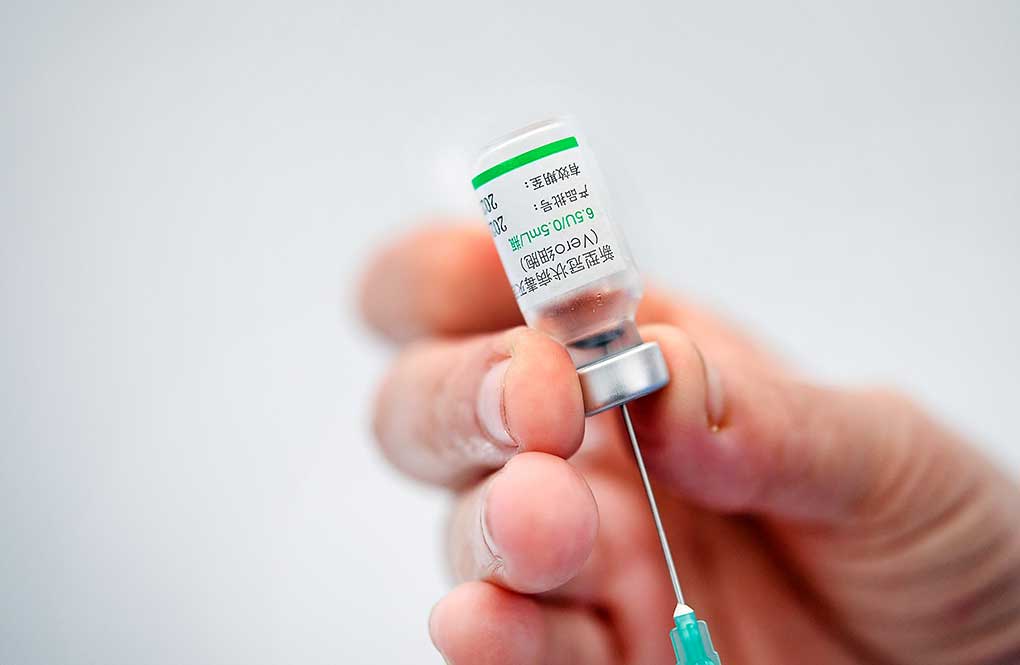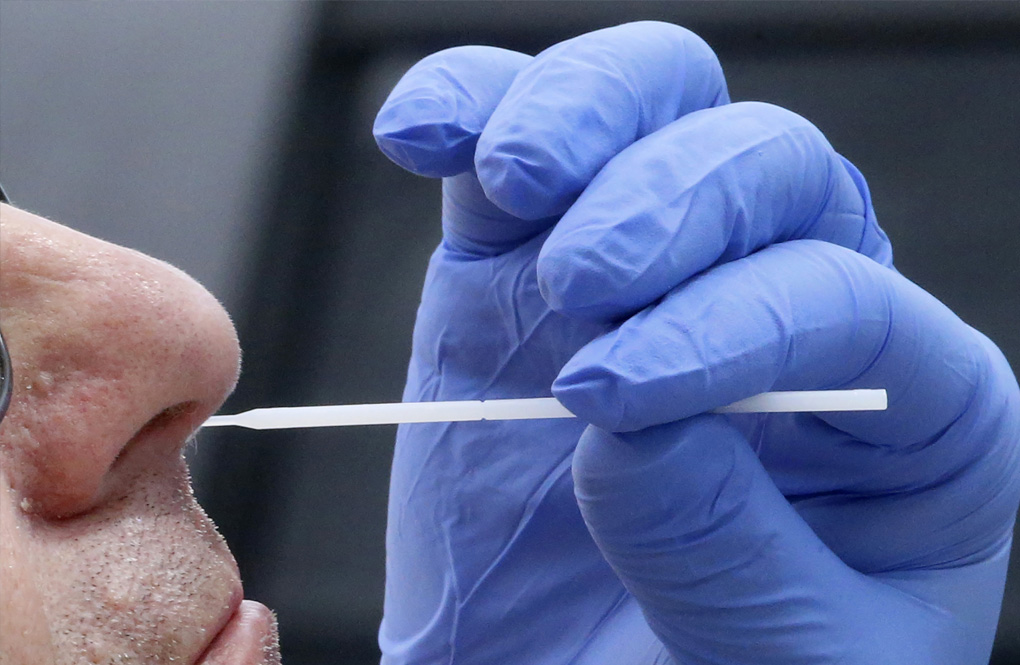India and China have cleared a new approach in COVID-19 vaccination – two needle-free options, one a squirt in the nose and the other inhaled through the mouth – while Germany may drop a requirement to wear masks on planes.
Regulators in India authorised Bharat Biotech’s nasal version on Tuesday as an option for people who have not yet been vaccinated.
“This step will further strengthen our collective fight against the pandemic,” Indian health minister Mansukh Mandaviya said on Twitter.
It is not clear how well the nasal version works.
Bharat did not immediately release results of its studies or say how soon the new option will roll out.
CanSino Biologics announced on Sunday that Chinese regulators have approved an inhaled version of the company’s injected COVID-19 vaccine to be used as a booster dose.
The company pointed to preliminary results of studies suggesting the inhaled version revved up immune protection after one puff.
It is not clear if that translated to improved effectiveness or how soon the inhaled booster will be available.
Jab-free versions of COVID-19 vaccines are being explored as a strategy to improve protection against infection, with particular interest in nasal vaccines designed to fend off the virus right where it enters the body.
Nearly a dozen possible candidates are in various stages of testing globally and CanSino’s is one of two inhaled vaccine candidates being developed, according to the World Health Organisation.
India’s nasal vaccine was developed by US scientists at Washington University in St Louis and later licensed to Indian vaccine maker Bharat Biotech.
Bharat also is seeking clearance for the nasal spray to be used as a booster for the two-thirds of people in India who have already been vaccinated.
Bharat’s nasal spray uses a harmless chimpanzee cold virus to deliver a copy of the coronavirus spike protein to the lining of the nose, training the body to react if it encounters the real virus.
CanSino’s inhaled booster uses a similar harmless human cold virus – it is the company’s one-dose injected vaccine turned into an aerosolized form.
The inhaled vaccine was largely tested as a booster for people who had received another Chinese company’s COVID-19 shots.
Ashley St John, who is an immunologist at the Duke-NUS Medical School in Singapore, said scientists are pursuing nasal and inhaled COVID-19 vaccine options because the immune system has specialised tools to protect different sites in our body in slightly different ways.
“The advantage with nasal vaccines is that it may get rid of the virus before it has a chance to establish itself in the lungs and replicate,” Dr Vineeta Bal, an immunologist and professor at the Indian Institute of Science Education Research in Pune city, said.
The advantages that vaccines sprayed through the mouth have will depend on the size of individual droplets in the spray, Bal added.
Large droplets would train defences in the mouth and parts of the throat while smaller droplets are expected to travel deeper and reach the lungs.
Meanwhile, the German government says it plans to drop a requirement for people to wear masks on flights to and from the country although the health minister adds that it could be reimposed if coronavirus cases rise sharply.
The rules mandating masks on flights run through September 23 and the smallest party in the coalition government, the libertarian Free Democratic Party, has pressed for an end to them.
The initial draft for this autumn’s rules foresaw an obligation to wear N95-type masks on planes as well as long-distance trains and buses.
Health Minister Karl Lauterbach told reporters in Berlin that “next to no masks are worn on international flights – the rules have been loosened there”.
He said Germany’s biggest airline Lufthansa had said repeatedly that the mandate “can no longer be implemented, so we have refrained from this and are limiting ourselves to the domestic areas where this is possible”.
(AAP)













